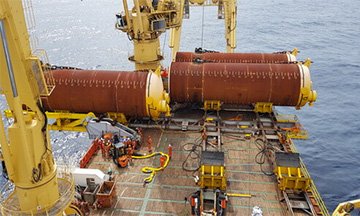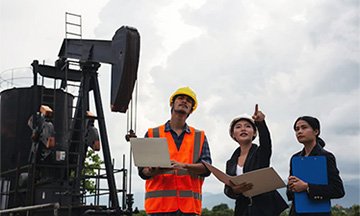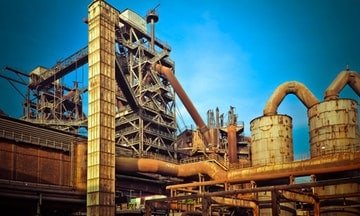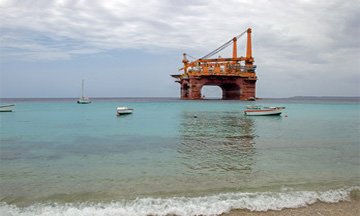Oil and Gas Operational Safety Training Course
| Date | Format | Duration | Fees | |
|---|---|---|---|---|
| 19 May - 23 May, 2024 | Live Online | 5 Days | $2250 | Register |
| 24 Jun - 28 Jun, 2024 | Live Online | 5 Days | $2250 | Register |
| 22 Jul - 26 Jul, 2024 | Live Online | 5 Days | $2250 | Register |
| 11 Aug - 22 Aug, 2024 | Live Online | 10 Days | $4495 | Register |
| 23 Sep - 27 Sep, 2024 | Live Online | 5 Days | $2250 | Register |
| 14 Oct - 18 Oct, 2024 | Live Online | 5 Days | $2250 | Register |
| 18 Nov - 22 Nov, 2024 | Live Online | 5 Days | $2250 | Register |
| 23 Dec - 27 Dec, 2024 | Live Online | 5 Days | $2250 | Register |
| Date | Venue | Duration | Fees | |
|---|---|---|---|---|
| 22 Apr - 26 Apr, 2024 | Manchester | 5 Days | $5695 | Register |
| 27 May - 31 May, 2024 | Dubai | 5 Days | $4750 | Register |
| 02 Jun - 06 Jun, 2024 | Riyadh | 5 Days | $4950 | Register |
| 10 Jun - 14 Jun, 2024 | Dubai | 5 Days | $4750 | Register |
| 08 Jul - 12 Jul, 2024 | Dubai | 5 Days | $4750 | Register |
| 12 Aug - 16 Aug, 2024 | Dubai | 5 Days | $4750 | Register |
| 25 Aug - 05 Sep, 2024 | Doha | 10 Days | $9150 | Register |
| 09 Sep - 13 Sep, 2024 | Dubai | 5 Days | $4750 | Register |
| 30 Sep - 04 Oct, 2024 | Dubai | 5 Days | $4750 | Register |
| 04 Nov - 08 Nov, 2024 | Cape Town | 5 Days | $4950 | Register |
| 18 Nov - 22 Nov, 2024 | Dubai | 5 Days | $4750 | Register |
| 09 Dec - 13 Dec, 2024 | Dubai | 5 Days | $4750 | Register |

Course Overview
The Oil and gas industry is one of the most diversified industries in the world. It’s a multi-disciplinary industry with complicated operations onshore and offshore. Oil and gas operations have highly inflammable & hazardous materials and gases. The Hazardous nature of oil and gas needs special emphasis on operational safety for a safe workplace for all workers.
Complex operations need detailed safety education and training for employees working with machines, equipment and tools. Oil and gas operational safety is always critical and due to the harmful environment of oilfield operations either onshore or offshore.
This Zoe Oil and Gas Operational Safety training is specifically designed for onshore and offshore oil field operations for better and safe workforce practices. This course is enriched with international safety standards and code of conduct, we not only train safety but we educate a safety vision.
Course Objectives
The objectives of this Oil and Gas Operational Safety Course is to empower professionals with:
- A better and safe workplace for employees
- Techniques to Transform into a safe workplace culture
- Understanding causes of incidents, how to investigate incidents and how the outcome of an investigation can be used for future safe practices
- Recognizing the risks and hazards associated with oil and gas operations and how to minimize these hazards
- Educate and train the workforce about specified safety procedures and safety standards during contracts management
- Safety and hazards management during a maintenance operation, shutdown operations
- Essential training to handle hazardous material, hazardous substances and gases during oilfield operations
- Necessary training in boilers and storage tanks operations
- Important training in marine operations
- Vital training on equipment and tools used by workers
- Crucial training on fire hazards and fire hazards management and prevention techniques
Training Methodology
ZOE Talent Solutions is offering premium courses on oil and gas safety around the globe with the finest learning environment. We have certified trainers and instructors with proven experience and knowledge in the specified fields of study.
Oil and gas operational safety course and all other courses are delivered through classes with practical assignments and conducted either inbound or outbound. State of the art facilities are provided for our participants to complete their projects. A final assessment is carried out after detailed training.
Zoe Talent Solutions follows the “Do–Review–Learn–Apply” model.
Organizational Benefits
On successful completion of Oil and Gas Operational Safety Course, participants shall be able to benefit their organization in the following ways:
- Reduced breakdown time for operations
- The Good reputation of the organization with safe operations
- A safe workplace leads to safe operations and increase productivity
- Cost-saving in terms of insurance and legal cost
- Reduced absenteeism and less sick leaves of workforce reduces rehiring cost
- Strong safety culture retains strong safety ranking of an organization
Personal Benefits
This course will give utmost benefits for Workers, operators and technical professionals during their professional duties, some of the benefits are as follows:
- Workforce awareness about safe operations
- Wider knowledge in oil and gas operational safety
- Reduction in injuries and accidents at workplace
- Increase productivity due to less lost time or delay time
- Compliance with safety rules and regulations
- Reduced cost associated with accidental operations
- A strong safety culture boosts workforce morale
Who Should Attend?
Safety is important for all, especially for those who are involved in oil and gas operations directly or indirectly. Some of the oil and gas professionals who should attend this course are:
- Executives and managers of oil and gas operations
- Decision-makers and project managers in the oil and gas field
- Vendors and subcontractors of projects and organizations
- Potential investors in oil and gas business
- Visitors who are interested in visiting oilfield operations must undergo this training
- Inspectors and auditors in oil and gas operations
Course Outline
Module 1: Learning about Past Incidents/Accidents
- Incident investigation
- Root cause analysis of incident
- Activity hazard analysis
- Rectification plan for incidents
- Major accidents in oil and gas and learning from these accidents
- Analysis of technical failure of major accidents
Module 2: Inherent Oil and Gas Hazards
- Meaning/Denotation & Applicability of certain words and sentences in oil & gas
- Risks and hazards associated with different gases in oil and gas
- Risks and hazards of materials and chemicals used in oil and gas
- Control measures for hazards of gases and materials
Module 3: Techniques for Risk Management
- Quantitative & qualitative risk assessment techniques
- Tools for risks assessment and their application
- How to manage major incidents?
- Safety standards for oil and gas industry
- Risks & hazards control with the help of barriers
Module 4: Hydrocarbon Process/Procedure Safety: Contracts Management
- The scale of service provider/contractor
- Agreement management & ownership for site monitoring and supervision
- Responsibilities of selected contractor/service providers
- Hazards identification handing over
Module 5: Hydrocarbon Process/Procedure Safety: Process Safety Management
- Available controls for process safety
- Changes in controls and their management
Module 6: Hydrocarbon Process/Procedure Safety: Shift Handover Procedures and Principles
- Emphasis on written communication during shift handover
- Communication between both shift’s caretakers and their joint responsibilities
- What should be included during shift handover?
Module 7: Hydrocarbon Process/Procedure Safety: Permit to Work
- Aims & objectives of permit to work system
- Key features of this system
- Permit types
- Tag out, lockout system
- Interfaces with service provider/contractors
Module 8: Hydrocarbon Process/Procedure Safety: Plant Operations/Processes & Maintenance
- Assets integrity
- Inspection and maintenance strategies
- Safe operation’s standards, principles and techniques
- Cleaning, purging, gas freeing and water drainage
- Ignition sources during maintenance
Module 9: Hydrocarbon Process/Procedure Safety: Start-up Operation & Shutdown Operation
- Risks & hazards associated with start-up operations and shut-down operations
- Control procedures associated with start-up & shut-down procedures
- Hazards and risks associated with commissioning and testing
Module 10: Hydrocarbon Process/Procedure Safety: Failure Modes
- Introduction
- Failure modes
- Safe operating parameters/envelope
- Failure modes and their knowledge during initial design
- Multiple failure types e.g., weld failure
- Examples
Module 11: Hydrocarbon Process/Procedure Safety: Critical/Acute Equipment Control
- Emergency shut-down equipment (EDS)
- Safety integrity levels
- Procedures/processes to bypass the emergency shut-down system (EDS)
- Available facilities for a blowout/down
Module 12: Hydrocarbon Process/Procedure Safety: Safe Containment/Inhibition of Various Hydrocarbons
- Overfilling and overloading hazards
- Landing and sinking the roof
- Roof tank floating
- Pressure & vacuum hazards
- Pressurized vessels of LNG
- Refrigerated vessels of LNG
- Plant decommissioning and decommissioning of associated facilities
Module 13: Hydrocarbon Process/Procedure Safety: Risks and Hazards of Fire and Their Control
- Fire triangle
- Explosion risks and hazards
- Identify ignition sources
- Ignition prevention equipment either mechanical or electrical
- Equipment for critical control
Module 14: Hydrocarbon Process/Procedure Safety: Furnace Operations & Boiler Operations
- Operations of furnaces and boilers and their use
- Risks and hazards associated with furnace & boilers operations
- Flame impingement, over-pressure, gas supply, tube control etc.
- Temperature
Module 15: Fire Protection/Prevention & Emergency Action Plan: Fire & Explosion in Petroleum and Oil and Gas Organization and Industries
- Fire detection system & leak detection system
- The active and passive fire detection system
- Inert based, Water-based and chemical extinguishing systems
- Fire protection equipment and system along with their functions
- Examples
Module 16: Fire Protection/Prevention & Emergency Action Plan: Emergency Response
- Emergency/immediate action/plan
- Alarm system
- Medical emergency plan
- Medical evacuation/withdrawal procedure
- Principles or SOPs of evacuation, escape or rescue from oil and gas onshore facilities & offshore platforms
- Training for employees and safety drills
- Liaison/association with emergency service providers











